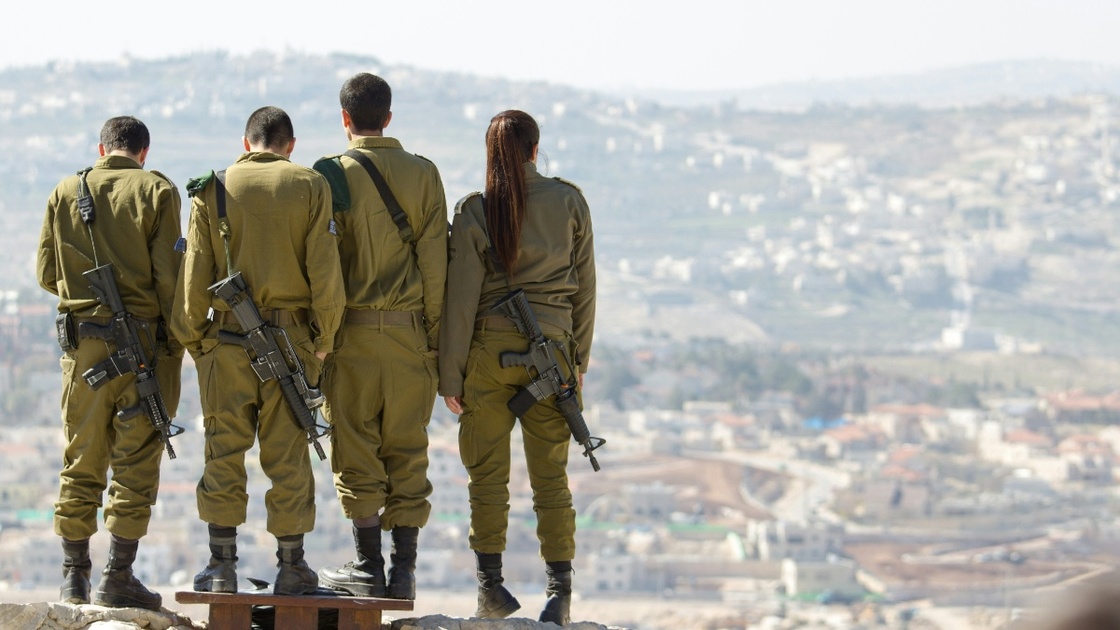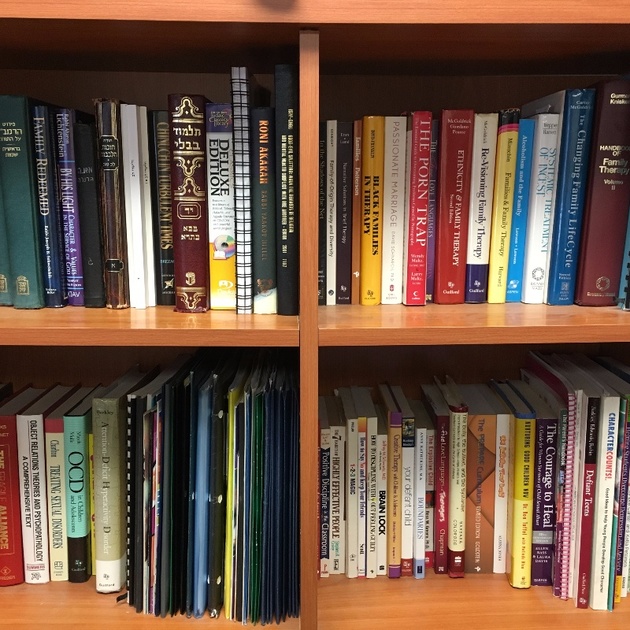
My wife and I are in the unique position of living in between two distinct communities. We spent numerous years in Kollel and have been part of the larger Yeshiva community for decades. Those years and decades were deeply meaningful to us; they remain very much a part of us. We continue to cherish the friendships and connections we formed during our Kollel-plus years.
My wife and I, though, also enjoyed upbringings that included a broader array of experience. Each of us Davened at Shuls that existed in the space between Modern Orthodox and “Yeshivish”. We went to schools that were, in the least, sympathetic to religious Zionism.
Ever since COVID, we have been Davening at a Shul that fervently recites the Tefillah for both the Chayalim and the Medinah. Our Rabbi has, since October 7, participated in several missions to Israel. His Derashos speak to us. We find the journal-style emails he composes moving. Along the way, we've become close to several Shul families.
Not surprisingly, some of our children haven’t neatly fit into the Yeshivish spaces provided by the schools we chose for them. To the extent that we tried to model respect toward every segment of the community, we found ways to embrace this. I recall multiple Yemei Ha’atzma’ut during which we openly discussed the ideas and visions that animated both the religious people who supported Zionism and the religious people who opposed it.
One of our children, in particular, was best served by a school that was, religiously, a shade or two to the left of where we stood. One thing that was helpful to him was that we enthusiastically supported the proud religious Zionist stance of his school.
When, near the beginning of 12th grade, he announced that he was planning to join the IDF, we were overjoyed, not to mention a little scared. Our son completed 12th grade and then attended a wonderful Yeshiva-Israel program. He learned to speak Hebrew like a native and entered basic training. From there, our son joined a specialized combat brigade, received his beret, and along the way met the lovely young Sabra who would become his wife.
Our son and daughter-in-law were visiting America, when October 7th struck. We received our first real accounts of the day’s horrors, on the night of Simchas Torah. Our children’s shocked, ashen faces spoke volumes to us.
Less than a week later, our son, having returned to Israel with his wife, arrived at his base, poised to enter Gaza. Soon thereafter, he handed in his phone, and we were unable to reach him.
Early on in his Gaza deployment, our son’s unit was shredded by casualties and had to return to base. Some of our son’s comrades were not ready to return; he was. Our son reentered Gaza, embedded in a larger squad, where he remained for over a month. He had extremely limited contact with the outside world.
At the moment our son deployed, we notified our community and requested that people Daven for him. Everyone who knows him responded generously, with their Tefillos.
What became complicated for me was the questions I began fielding from some community peers. Most had no real connection to the experience of having a child in battle. Their questions and comments reflected this:
“You must be more terrified now than you’ve ever been.” “I would imagine you are awake at night, awaiting a terrible call.” Are you sure he’s in Gaza? How do you really know?”
Our family was already awash with emotion. Even as we were deeply proud of our son, we were haunted by unspeakable thoughts, unbearable fears. It was enough for my wife and me, for our children and Mechutanim, to stay sane all on our own. My peers’ comments and questions, some of which felt intrusive, pushed me toward the edge.
As I entered the spaces I typically share with my friends, I found myself Davening longer Tefillos, sticking my head for longer periods into a Sefer, rushing out quickly to my office. The extra chapters of Tehillim I recited slowly, gradually, wove an emotional barrier between myself and others. My friends’ questions slowed to a trickle and then stopped altogether.
Our son’s brigade remained in Gaza for more than a month, before they were allowed to return home. (In the exit portraits taken of his squad, the bedraggled young men resemble pirates more so than soldiers.) His group’s army service had technically ended during that month, and they were expected to be out of action for a while. We all slowly decompressed.
Less than a week after our son returned home, I saw one of his former Rebbeim - someone I’d not spoken to, in a bit. I called out his name. The Rebbi looked up.
“Our son is out. He is out of Gaza. He’s Baruch Hashem o.k,” I said. The Rebbi, with a relieved expression, shared “We Davened for him every day."
He paused and then said “I’ve noticed how you seemed to need your own space over the past month or so. I tried my best to respect that.”
His words pierced my heart. I may have shut the Rebbi out of my world - perhaps, I had to - but he clearly had not shut me out of his. I looked at him, as tears started to well up in my eyes, and said “Thank you. Thank you, very much, for your sensitivity.”
My wife and I continue to stand astride of two communities. We still enjoy the blessing that each community affords us. I hope that I can internalize the Achdus (or is it Achdut) we can all feel toward one another.
May all our soldiers come home, whole and wholesome. May all the hostages be returned. May those who’ve experienced loss find Nechamah. May we all greet, as one Tzibbur, Mashiach Tzidkeynu, speedily and in our days.
Glossary of Terms:
Achdus: Unity
Baruch Hashem: Thank G-d
Chayalim: Soldiers
Daven: Pray
Derashos: Sermons
Kollel: Advanced Jewish study institute
Mashiach Tzidkeynu: Messiah, our righteous one
Mechutanim: In-laws
Medinah: The (Jewish) state
Nechamah: Comfort
Rebbeim: Teacher(s)
Shul: Synagogue
Sabra: Native Israeli
Sefer: Jewish holy book
Simchas Torah: Holiday of rejoicing with the Torah
Tefillah: Prayer
Tehillim: Psalms
Tzibbur: Community
Yemei Ha’atzma’ut: Independence Day(s)
Yeshiva: A school of Jewish learning
Yeshivish: Pertaining to the more insular Yeshiva-type community
Photo Credit: Timon Studler: Unsplash
 Previous
Previous

